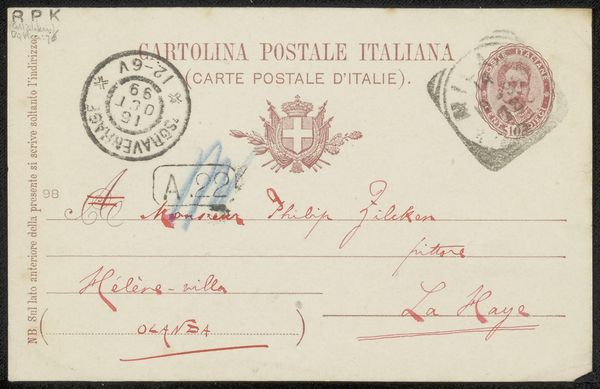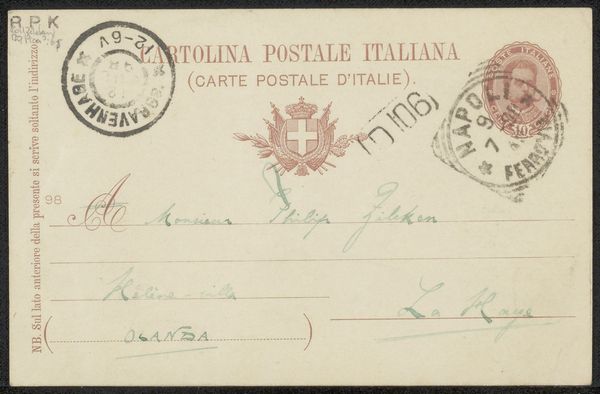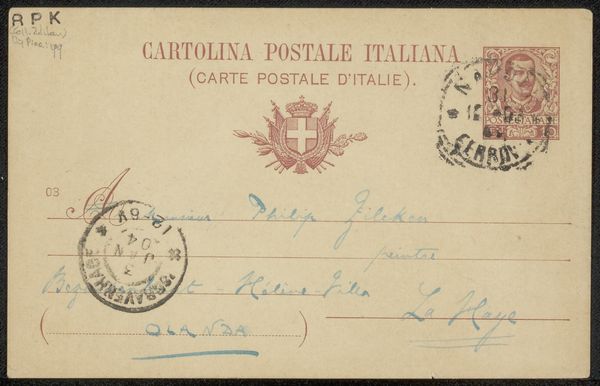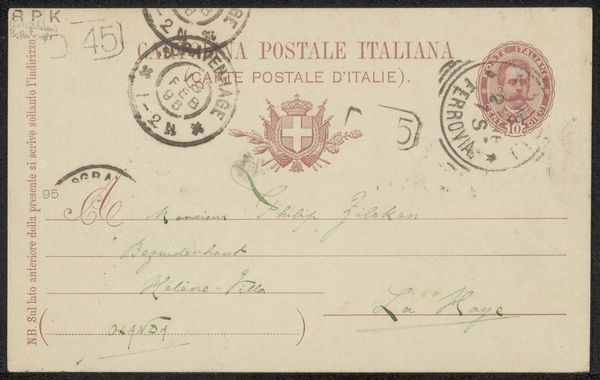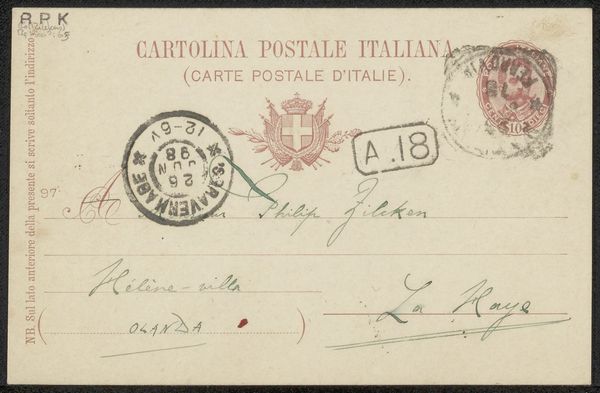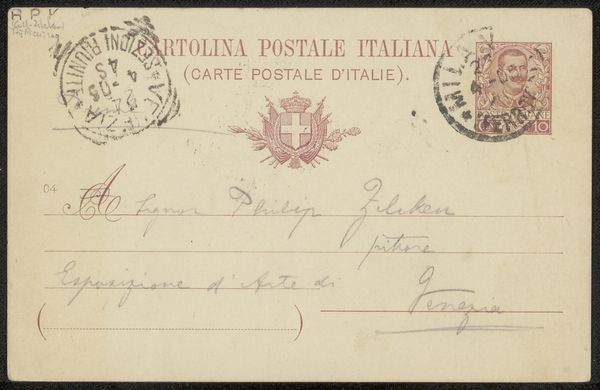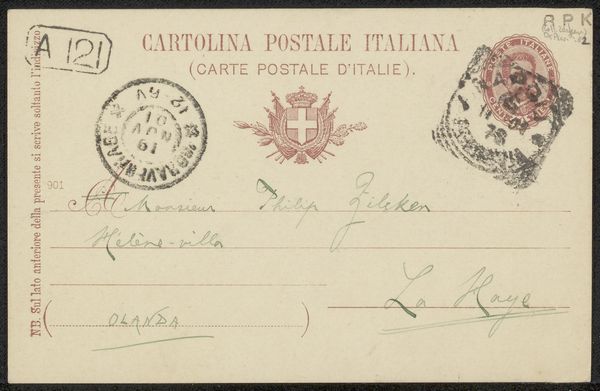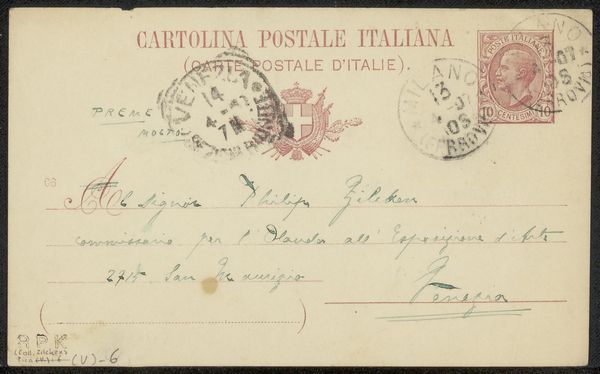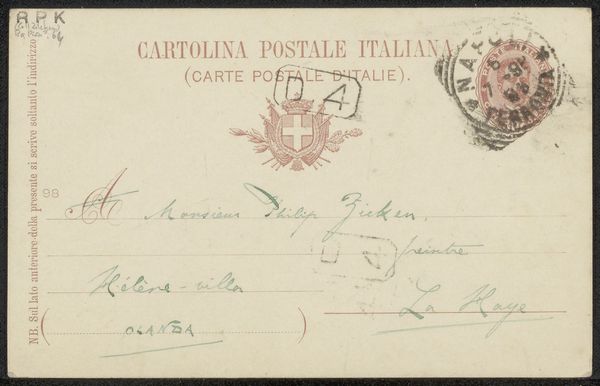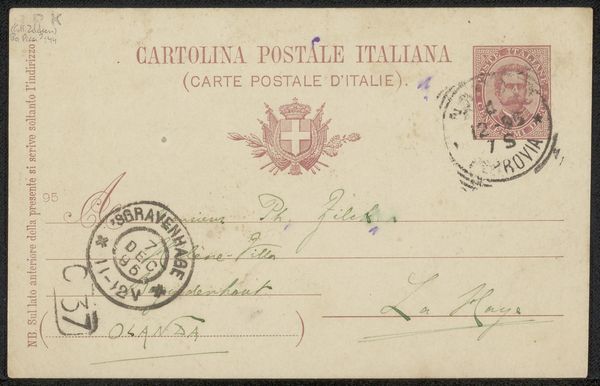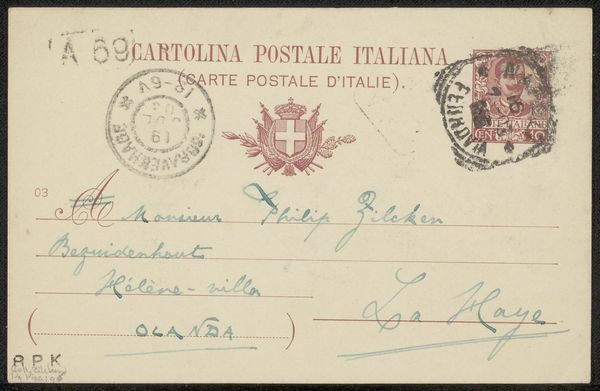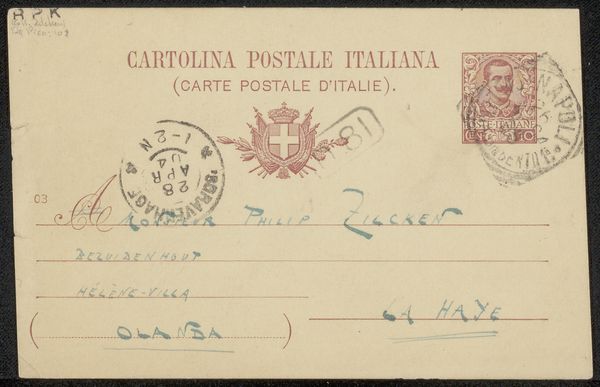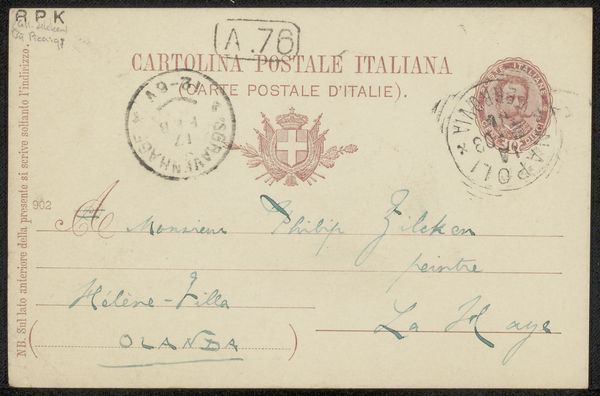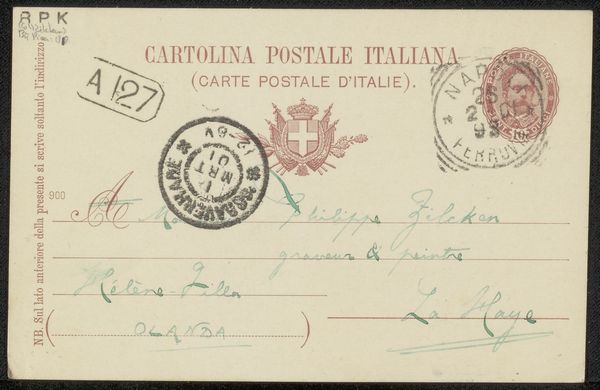
paper, photography, ink
#
portrait
#
paper
#
photography
#
ink
Copyright: Rijks Museum: Open Domain
Editor: Here we have "Briefkaart aan Philip Zilcken," which translates to Postcard to Philip Zilcken. It's a photographic postcard, possibly from 1908, with added ink details. It feels intensely personal. How do you interpret this intimate message from Vittorio Pica? Curator: This isn’t merely a postcard; it’s a document of artistic exchange embedded in a specific historical context. Considering Pica’s influence as an art critic who championed the avant-garde, this postcard becomes more than just a greeting. It’s a connection, possibly an affirmation, between two artists navigating the Italian art scene of the early 20th century. We must ask: what socio-political currents were influencing artistic circles at this time and how might that relationship play out? Editor: So, you see it as a commentary on artistic relationships and the environment in which those occurred, rather than simply correspondence? Curator: Precisely. Consider the recipient, Philip Zilcken, also an artist. The postcard itself becomes a miniature stage upon which issues of artistic validation, patronage, and even competition are acted out. Whose work was seen and valued? Whose voices were amplified? In addressing Zilcken as “pittore” [painter], Pica affirms Zilcken's place and visibility. But it also subtly establishes a hierarchy. Editor: That's fascinating! It hadn't occurred to me that even a simple postcard could carry such weight. Is there significance to it being a photograph, in contrast to a painting? Curator: Absolutely. The rise of photography in this era challenged traditional notions of artistic skill. A photographic postcard blurred the lines between mass production and artistic expression. This invites us to contemplate the politics of representation and how artists positioned themselves within these rapidly changing mediums. It opens up questions around access and art making as social practices, beyond purely aesthetic considerations. Editor: I hadn't thought about how a seemingly simple card could unlock so much insight. Thank you! Curator: The past always informs our present. Considering it is our job as curators to open it.
Comments
No comments
Be the first to comment and join the conversation on the ultimate creative platform.
